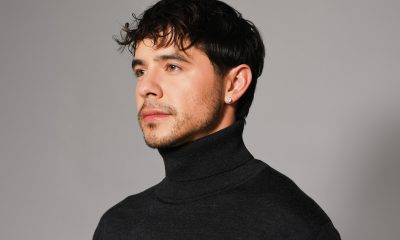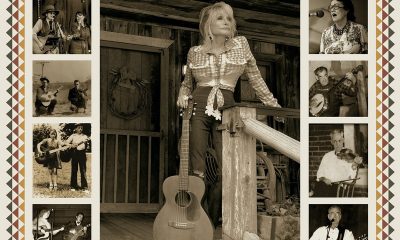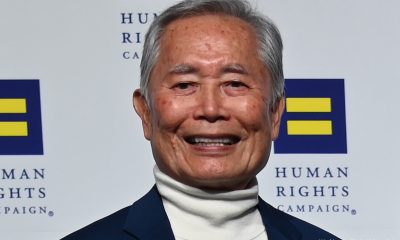Television
A song of love & courage for Grandpa Ray- American Idol 2023
“It’s a big relief to stand here and be proud and say I’m gay and there’s nothing wrong with it- my grandson, he’s my rock”
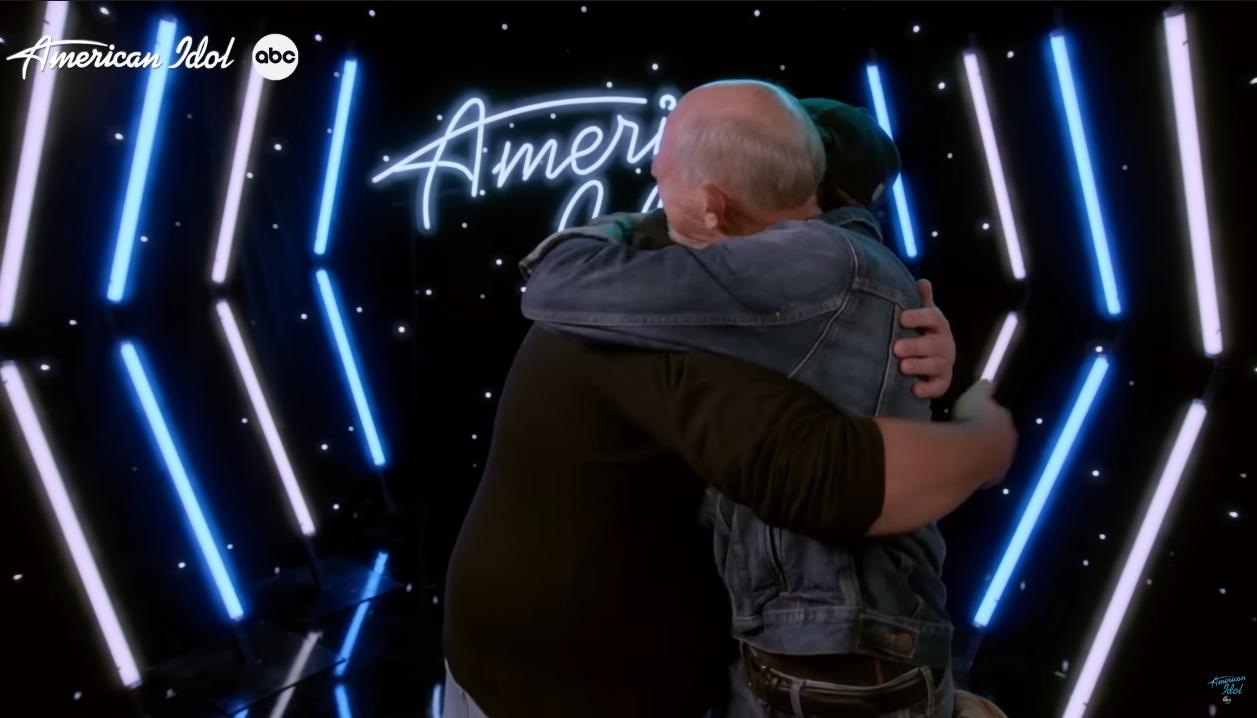
NASHVILLE – Hailing from Goshen township in Clermont County, Ohio, 21-year-old Jon Wayne Hatfield’s American Idol audition song is dedicated to Ray, his grandpa and best friend, who recently came out as gay.
The song, “Tell Me Ray,” helped Ray believe more in himself and shed lifelong insecurities: “It’s a big relief to stand here and be proud and say I’m gay and there’s nothing wrong with it,” Ray says. “My grandson, he’s my rock.”
Grandpa Ray sits on the piano bench during Jon Wayne Hatfield’s moving audition, which gets a standing ovation from the three Idol judges, country superstar Luke Bryan, pop star Katy Perry, and R&B pop superstar Lionel Richie.
An Original Song Of Love And Courage For Grandpa Ray by Jon Wayne Hatfield:
Television
ICYMI: ‘Overcompensating’ a surprisingly sweet queer treat
A sweet, savvy show about breaking free to embrace your true self

Pride month 2025 is now behind us, and while it’s safe to say that this year’s celebrations had a darker edge than usual, it’s also true that they came with a particularly rich bounty of new queer movies and shows to entertain us – so many, in fact, that even if we are facing a lull until the fall for another harvest of fresh content, there are still plenty of titles – which, for whatever reason, were off your radar – for you to catch up on in the meantime.
One of the most notable of these – the bingeworthy series “Overcompensating” (now streaming on Amazon Prime) – will most definitely have been on the radar for the plentiful fans of creator and star Benito Skinner, the actor/comedian who rose to viral fame through his content on platforms like Instagram, YouTube, and TikTok; for anyone else, it might have easily slipped through the cracks.
Created and written by Skinner as a loosely autobiographical collegiate comedy, it aims for the kind of raucous, explicitly sexed-up tone one expects from that genre as it centers on Benny (Skinner), newly arrived as a freshman at prestigious Yates University. A former football jock and “golden boy” at his midwestern high school, he’s the picture of idealized youthful masculinity; he’s also deep in the closet, struggling to keep his sexuality hidden and maintain his macho “bro” image under the intense scrutiny of the college’s social scene – and under the resentful eye of his older sister Grace (Mary Beth Barone), who has already secured her own place at the top of the pecking order.
In the first episode, Benny’s difficulties are eased when he meets Carmen (Wally Baram), another freshman trying to navigate the politics of college life; a gamer from a home disrupted by tragedy, she’s an outsider who feels like she’s putting on an act, too, and they click – giving him the convenient cover of female companionship while providing them both with much-needed support and encouragement. He’s also befriended by a handsome film major from England (Rish Shah), who has already caught his eye, stirring up other kinds of feelings faster than you can say “no homo.” Meanwhile, he’s being courted by the school’s “exclusive secret society” – headed by his sister’s aggressively “alpha” boyfriend Pete (Adam DiMarco) – and trying to stay interested in his studies, despite a growing realization that a career in business doesn’t actually appeal to him all that much.
That’s a lot to juggle for anybody, even an overachiever like Benny – whose “lucky” life so far has largely been the result of playing a role he is finding increasingly hard to maintain; but as the series goes on through its eight-episode arc, it becomes clear that he’s not the only one who is “keeping up appearances,” and he is just one of many confused and damaged young people in his orbit, all facing the painful (but often hilarious) process of evolution that is required in order to become truly oneself.
Tailored for appeal to a youthful demographic, “Overcompensating” is the kind of show that requires a few episodes worth of invested time to make an impression that feels like substance. Full of the bawdy farcical antics that go hand in hand with stories about hormonally charged college kids, it’s not above leaning into the formulas and tropes that have always driven these kinds of comedies. At first, while its broadly comedic strokes and frequently explicit sexual hijinks might elicit plenty of chuckles, the show might easily feel tiresome for more mature audiences; there’s a nostalgic fun to it, made even more appealing, somehow, by the “political incorrectness” of its frequently sexist and homophobic humor, but for a while things may feel like an unnecessary attempt to reinvent “Animal House” for the Gen Z crowd.
By the time the season reaches its halfway point, however, things have started to get real. The antics of these horny almost-adults take on a more pointed absurdity, informed by the increasingly tangled web of defensive deceit they weave among themselves – and, as things draw toward a cliffhanger climax, the consequences of maintaining it – until it achieves a sense of empathy toward them all. There’s a wisdom that smacks of lived authenticity underlying the whole affair, transforming it from the “sexploitative” teen comedy of its surface into something deeper. Sure, things stay expectedly wacky, and the soap-operatic melodrama of its twists and reversals continue to maintain the show’s “mature YA” appeal; but beneath those trappings, by the end of the season a truer identity has begun to emerge, just as its characters have begun to find their own levels of self-actualization for themselves.
As creator, primary writer, and star, it’s obviously Skinner who deserves much of the credit. While it might be tempting, early on, to dismiss the show as an “ego project,” the internet-spawned sensation proves his talents quickly enough to get past such judgy skepticism, delivering a pitch-perfect blend of sauciness and sensitivity that extends its appeal toward both ends of the taste spectrum; just as crucially, he brings the same aforementioned “lived authenticity” to his winning performance – after all, he’s essentially playing himself in a fictionalized version of his own life – while also making sure that equal time (and compassion) is afforded all the other characters around him, each of whom are pushing at the boundaries of their own respective “closets,” too. It’s unavoidable to notice that – like most of his co-stars – he’s plainly a decade too old to be playing a college student; but by the time we reach that crucial halfway turning point, we’ve become too engaged by him to care.
The show is full of excellent performances, in fact. Relative newcomers Baram and Barone offer layers of complex nuance, while the more familiar DiMarco (“White Lotus”) is close to heartbreaking as the toxic BMOC clinging to the illusion of power as his life begins to unravel around him. Other standouts include the mononymic Holmes as Carmen’s “wild girl” roommate, solidly likable turns as Benny’s parents from mature veterans Connie Britten and Kyle MacLachlan (whose presence, along with stylish elements in several key scenes, hints at an homage-ish nod to the late David Lynch), and podcaster Owen Thiele as an openly gay fellow student who has Benny “clocked” from the moment they meet. Finally, Lukas Gage makes a deep and tender impression as a former high school teammate at the heart of Benny’s most haunting memory.
There’s no official word yet on whether “Overcompensating” will be renewed for a second season, despite the multiple loose ends left dangling at the end of its first; it has proven to be popular, and Skinner’s large fanbase makes it likely that the story will continue. Even if it doesn’t, the place of uncertainty in which it has left its characters rings true enough to serve as a satisfying endpoint.
As for us, we hope that won’t happen. For all its sophomoric humor, generic plot twists, and purposefully gratuitous sexual titillation, it’s one of the sweetest, kindest, and most savvy shows we’ve seen about breaking free from conformity to embrace your true self – and that’s a message that applies whether you’re queer, straight, or anywhere in between.
Television
‘White Lotus,’ ‘Severance,’ ‘Andor’ lead Dorian TV Awards noms
‘Voters have a special affinity for stories of self-discovery’
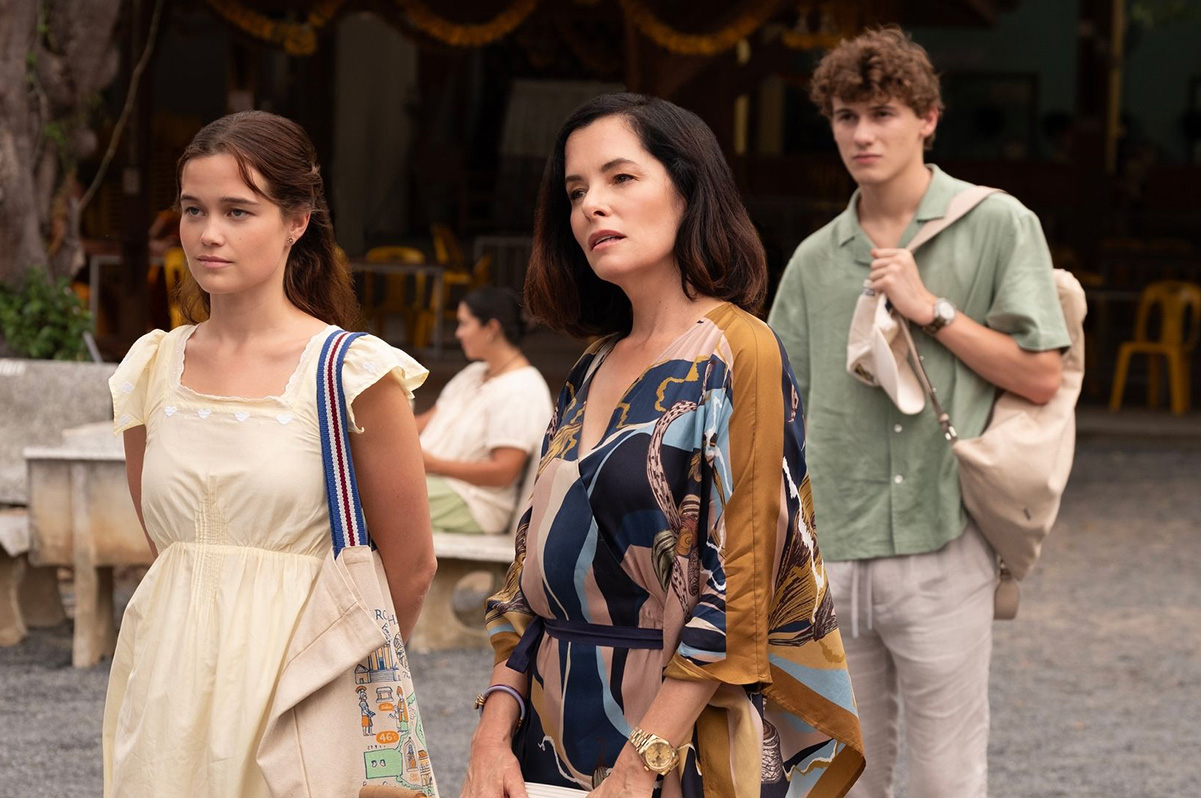
As the Academy of Television Arts and Sciences wrapped up the voting for nominations in its annual race for the Emmy Awards this week, much of Hollywood (and countless fans with favorite contenders of their own) was buzzing with speculation about who and what will be included when the final slate of nominees is announced on July 15 – but just in time for Pride Month, GALECA (The Society of LGBTQ Entertainment Critics) has stolen a bit of its thunder.
The second largest entertainment journalists group in the world, GALECA is made up of 560 members who, as the group’s press release proudly states, ”write and work for some of the most respected and buzz-worthy media outlets in the U.S. and beyond.” Last week, the organization announced its list of nominees for the 16th Annual Dorian TV Awards, representing the “queer eye’s” choices for the best in television and streaming, among both mainstream and LGBTQ content – and the list of contenders includes an exciting mix of A-listers, icons, and up-and-coming stars. This year’s performance and tribute categories – all of which are non-gendered – recognize such established talent as Beyoncé, Jean Smart, Colin Farrell, Colman Domingo, Michelle Williams, Pedro Pascal, Natasha Lyonne, Uzo Aduba, Bella Ramsey, Noah Wyle, and current flavor-of-the-day “daddy” Walton Goggins, alongside such lesser-known names as Ncuti Gatwa, Katherine LaNasa, Owen Cooper, and (as GALECA puts it) “the actress who simply calls herself Holmes.”
For those unfamiliar with GALECA, it’s not just an organization that gets together to give out awards – though it presents Dorians for film, television, and theater at separate times during the year, its stated mission is to “remind society that the world values the informed LGBTQ perspective on all things entertainment.” A nonprofit organization, they advocate for better pay, access, and respect for entertainment journalists (especially from underrepresented demographics), and provide scholarships for LGBTQ journalism students.
As for this year’s nominated shows, there’s an equally exciting mix of competitors. In the Best Drama categories, three critical and popular hits – the surreal and unpredictable Apple TV+ office drama “Severance,” the unabashedly anti-fascist and queer-inclusive Disney Plus “Star Wars” prequel series “Andor,” and HBO/Max’s irresistibly provocative hotel drama “The White Lotus” – are in the race with six Dorian nominations each, while two others – gritty medical drama “The Pitt” and video-game-inspired sci-fi zombie saga “The Last of Us” – are close behind them with five each.
In the comedy department: HBO/Max’s “Hacks,” already a two-time Dorian winner in the Best Comedy category, leads the pack with its own six nods, and the same streamer’s upbeat dramedy “Somebody Somewhere” grabbed four, while ABC’s Abbott Elementary (another two-time winner) pulled in three. Other contenders include the colorful new Apple TV+ Hollywood satire “The Studio” and season two of “The Rehearsal,” creator-star Nathan Fielder’s hard-to-categorize HBO/Max offbeat “societal experiment” that endeavors to teach “average folks” how to deal with various wildly-hypothetical life problems.
According to GALECA Executive Director Diane Anderson-Minshall: “By loving-up series like ‘Hacks,’ ‘Somebody Somewhere,’ and even ‘The Rehearsal’ and ‘Andor’ – a sci-fi story of the beginnings of a major rebellion – Dorian Award voters once again have shown they have a special affinity for stories of self-discovery and pushing for more. Like generations of LGBTQ+ people who took on the battle for the right to be who they are, these nominated programs underscore that solidarity, morality, and justice aren’t just for superheroes, but can be found in small daily actions.”
The same empathy for underdogs can be perceived behind one of GALECA’s other awards, the unique Best Unsung Series category, which amplifies shows its members believe deserve greater attention. This year’s contenders include quirky queer creator Julio Torres’ wickedly inventive and amusingly absurd HBO satire “Fantasmas” and the final season of Paramount+’s controversial-but-popular supernatural drama “Evil,” as well as Hulu’s irreverent “English Teacher” (from queer creator/star Brian Jordan Alvarez) and Amazon Prime’s “Overcompensating,” about a former high school jock and closeted college freshman, inspired by the college experiences of creator and star, social media and internet comedian Benito Skinner, who also received a Dorian nod for his acting in the show.
Of course, there’s also a category for the Best LGBTQ Series, which singles out television content of particular relevance to queer viewers. This year, crossover titles “Hacks,” “Somebody Somewhere,” and “Overcompensating” are nominated here, too, alongside the third season of Netflix’s beloved YA romance “Heartstopper” and the campy Disney+ Marvel spinoff “Agatha All Along,” which also scored a nod in the Musical Performance category for “The Ballad of the Witch’s Road.”
Speaking of camp, the Dorians would not be complete without GALECA’s most irreverent award. In the category of Campiest TV Show, “Agatha” is (surprisingly, perhaps) not among the nominees; however, Hulu’s exceptionally queer throwback sitcom “Mid-Century Modern,” which features stars Nathan Lane, Nathan Lee Graham and Matt Bomer as three gay besties who retire to Palm Springs together most deservedly is. The show – touted as a “gay ‘Golden Girls’” – also earned a posthumous Supporting Performance nod for beloved TV and Broadway legend Linda Lavin, who passed away before the series wrapped production late in 2024. Its competitors are Peacock’s deliciously dramatic Alan Cumming-led reality show “The Traitors,” Ryan Murphy’s over-the-top seafaring medical drama “Doctor Odyssey,” the aforementioned “Overcompensating,” and MTV’s eternal GALECA darling “RuPaul’s Drag Race.”
Among other award categories: Best TV Movie or Miniseries, which includes nominees like Netflix’s “Rebel Ridge” and HBO/Max’s “The Penguin”; Best Documentary and Best LGBTQ Documentary, both of which include HBO/Max’s heartfelt “Pee-wee as Himself”; Most Visually Striking Show, which highlights the design aesthetic of shows like “Andor” and “Agatha”; and Best Animated Show, which pits longtime favorites like “The Simpsons” and “Bob’s Burgers” against newer contenders like “Harley Quinn” and “Big Mouth.”
Finally, there are also some “honorary” awards to recognize the career-long impact and influence of their winners: the Wilde “Wit” Award, the TV Icon Award, and the LGBTQIA+ TV Trailblazer Award, each of which includes a host of groundbreaking talents among its nominees.
Clearly, though the Dorians don’t get the same glam treatment as many of the industry’s more “mainstream” award ceremonies, they have the impeccable taste one naturally expects from a panel of queer experts, and chances are good that – as is often the case – their choices will serve as a preview for what happens when the Emmys finally roll out their own red carpet.
Winners will be announced Tuesday July 8 at 8am PST. A full list of nominees can be found on the Blade website.
2025 DORIAN TV AWARD NOMINATIONS—FULL LIST
BEST TV DRAMA
Andor (Disney+)
The Last of Us (HBO/Max)
The Pitt (Max)
Severance (Apple TV+)
The White Lotus (HBO/Max)
BEST TV COMEDY
Abbott Elementary (ABC)
Hacks (HBO/Max)
The Rehearsal (HBO/Max)
Somebody Somewhere (HBO/Max)
The Studio (Apple TV+)
BEST LGBTQ TV SHOW
Agatha All Along (Disney+)
Hacks (HBO/Max)
Heartstopper (Netflix)
Overcompensating (Amazon Prime)
Somebody Somewhere (HBO/Max)
BEST TV MOVIE OR MINISERIES
Adolescence (Netflix)
Bridget Jones: Mad About the Boy (Peacock)
Dying for Sex (FX on Hulu)
The Penguin (HBO/Max)
Rebel Ridge (Netflix)
BEST WRITTEN TV SHOW
Andor (Disney+)
Hacks (Max)
The Pitt (Max)
Severance (Apple TV+)
The White Lotus (HBO/Max)
BEST UNSUNG TV SHOW
English Teacher (FX on Hulu)
Evil (Paramount+)
Fantasmas (HBO/Max)
Mid-Century Modern (Hulu)
Overcompensating (Amazon Prime)
BEST NON-ENGLISH LANGUAGE TV SHOW
Threesome (ViaPlay)
My Brilliant Friend (HBO/Max)
One Hundred Years of Solitude (Netflix) (tie)
Elite (Netflix) (tie)
Pachinko (Apple TV+)
Squid Game (Netflix)
BEST LGBTQ NON-ENGLISH LANGUAGE TV SHOW
Becoming Karl Lagerfeld (Hulu)
The Boyfriend (Netflix)
Elite (Netflix)
The Secret of the River (Netflix)
When No One Sees Us (HBO/Max)
BEST TV PERFORMANCE—DRAMA
Colin Farrell, The Penguin (HBO/Max)
Stephen Graham, Adolescence (Netflix)
Cooper Koch, Monsters: The Lyle and Erik Menendez Story (Netflix)
Diego Luna, Andor (Disney+)
Cristin Milioti, The Penguin (HBO/Max)
Pedro Pascal, The Last of Us (HBO/Max)
Bella Ramsey, The Last of Us (HBO/Max)
Adam Scott, Severance (Apple TV+)
Michelle Williams, Dying for Sex (FX on Hulu)
Noah Wyle, The Pitt (HBO/Max)
BEST SUPPORTING TV PERFORMANCE—DRAMA
Owen Cooper, Adolescence (Netflix)
Carrie Coon, The White Lotus (HBO/Max)
Taylor Dearden, The Pitt (HBO/Max)
Erin Doherty, Adolescence (Netflix)
Walton Goggins, The White Lotus (HBO/Max)
Katherine LaNasa, The Pitt (HBO/Max)
Genevieve O’Reilly, Andor (Disney+)
Parker Posey, The White Lotus (HBO/Max)
Jenny Slate, Dying for Sex (FX on Hulu)
Tramell Tillman, Severance (Apple TV+)
BEST TV PERFORMANCE—COMEDY
Uzo Aduba, The Residence (Netflix)
Quinta Brunson, Abbott Elementary (ABC)
Ayo Edebiri, The Bear (FX on Hulu)
Bridget Everett, Somebody Somewhere (HBO/Max)
Nathan Fielder, The Rehearsal (HBO/Max)
Kathryn Hahn, Agatha All Along (Disney+)
Natasha Lyonne, Poker Face (Peacock)
Seth Rogen, The Studio (Apple TV+)
Benito Skinner, Overcompensating (Amazon Prime)
Jean Smart, Hacks (HBO/Max)
BEST SUPPORTING TV PERFORMANCE—COMEDY
Ike Barinholtz, The Studio (Apple TV+)
Colman Domingo, The Four Seasons (Netflix)
Hannah Einbinder, Hacks (HBO/Max)
Holmes, Overcompensating (Amazon Prime)
Janelle James, Abbott Elementary (ABC)
Kathryn Hahn, The Studio (Apple TV+)
Jeff Hiller, Somebody Somewhere (HBO/Max)
Linda Lavin, Mid-Century Modern (Hulu)
Catherine O’Hara, The Studio (Apple TV+)
Meg Stalter, Hacks (HBO/Max)
BEST TV MUSICAL PERFORMANCE
Beyoncé, “Cowboy Carter” medley, Ravens vs. Texans Halftime Show (Netflix)
Doechii, “Catfish” / “Denial Is a River,” 67th Annual Grammy Awards (CBS)
Cynthia Erivo, Ariana Grande, “The Wizard of Oz” / “Wicked” medley, 97th Academy Awards (ABC)
Kathryn Hahn, Patti LuPone, Ali Ahn, Sasheer Zamata, “The Ballad of the Witches’ Road,” Agatha All Along (Disney+)
Kendrick Lamar, “Squabble Up,” “Humble,” etc., Super Bowl LIX Halftime Show (Fox)
BEST TV DOCUMENTARY OR DOCUMENTARY SERIES
Deaf President Now! (Apple TV+)
Elizabeth Taylor: The Lost Tapes (Max)
Pee Wee as Himself (HBO/Max)
The Rehearsal (HBO/Max)
SNL50: Beyond Saturday Night (NBC)
BEST LGBTQ TV DOCUMENTARY OR DOCUMENTARY SERIES
Disco: Soundtrack of a Revolution (PBS)
Fanatical: The Catfishing of Tegan and Sara (Hulu)
Outstanding: A Comedy Revolution (Netflix)
Pee Wee as Himself (HBO/Max)
Queer Planet (Peacock)
BEST CURRENT AFFAIRS SHOW
(Talk show or news/information program)
The Daily Show (Comedy Central)
Hot Ones (YouTube)
Everybody’s Live With John Mulaney (Netflix)
Late Night with Seth Meyers (NBC)
Last Week Tonight with John Oliver (HBO/Max)
BEST REALITY SHOW
The Amazing Race (CBS)
The Great British Baking Show (Netflix)
RuPaul’s Drag Race (MTV)
Top Chef (Bravo)
The Traitors (Peacock)
BEST GENRE TV SHOW
Agatha All Along (Disney+)
Andor (Disney+)
Black Mirror (Netflix)
The Last of Us (HBO/Max)
Severance (Apple TV+)
BEST ANIMATED SHOW
Big Mouth (Netflix)
Bob’s Burgers (Fox)
Harley Quinn (HBO/Max)
The Simpsons (Fox)
Star Trek: Lower Decks (Paramount+)
MOST VISUALLY STRIKING TV SHOW
Adolescence (Netflix)
Agatha All Along (Disney+)
Andor (Disney+)
Severance (Apple TV+)
The White Lotus (HBO/Max)
CAMPIEST TV SHOW
Doctor Odyssey (ABC)
Mid-Century Modern (Hulu)
Overcompensating (Amazon Prime)
RuPaul’s Drag Race (MTV)
The Traitors (Peacock)
WILDE WIT AWARD
Quinta Brunson
Alan Cumming
Hannah Einbinder
Cole Escola
Nathan Fielder
GALECA TV ICON AWARD
Gillian Anderson
Angela Bassett
Alan Cumming
Sarah Michelle Gellar
Jean Smart
GALECA LGBTQIA+ TV TRAILBLAZER AWARD
Jonathan Bailey
Greg Berlanti
Ncuti Gatwa
Bella Ramsey
Mike White
Bowen Yang

There’s long been a desire for a gay version of “The Golden Girls.”
GenX (and younger) fans who have loved that show’s iconic quartet of aging female “frenemies” have been clamoring for it since the actual “Golden Girls” was still on the air – so by the time the creators of “Mid-Century Modern” came up with the idea for a show about three gay friends “of a certain age” (and one cantankerous mother) living together in Palm Springs, it was hardly an original idea. Yet even if they weren’t the first to fantasize about a show featuring the gay male equivalents of Dorothy, Blanche, Rose, and Sophia, it hardly matters. They were the ones that actually made it happen.
That’s due in large part to who they are – or at least, what they’ve done before. The two men who hatched the plot (Max Mutchnick and David Kohan) were also responsible for “Will & Grace.” After they teamed up for a brainstorming session with queer TV powerhouse Ryan Murphy – who eagerly joined forces with them as the show’s executive producer – there was enough viability behind it to bring the long-gestated dream to fruition at last.
The “at last” came this week, when all 10 episodes of the show’s debut season dropped on Hulu, and it’s undeniable that there was not only a dream behind it, but also a considerable amount of talent – most obviously in its casting. Headlining (as “lingerie mogul” Bunny Schneiderman) is longtime stage/screen/TV star Nathan Lane, a multi-award winner who is a legend for his “Bird Cage” performance alone, with eternally hunky Matt Bomer adding a whole different flavor of star power as ditsy-but-sweet-hearted (and blithely promiscuous) flight attendant Jerry. The trio of friends is rounded out by former fashion columnist Arthur, played with imperious aplomb by Nathan Lee Graham, a lesser-known but equally well-rounded veteran performer whose resume includes roles in “Zoolander” and “Priscilla, Queen of the Desert,” as well as a guest appearance on “Absolutely Fabulous.” Finally, sitcom royalty (and Tony-winner) Linda Lavin – who passed away in December, after filming had completed on the show’s inaugural season – is on hand to steal scenes as Sybil, Bunny’s pull-no-punches mother, who owns the house they all live in and makes sure to assert her matriarchal dominance at every opportunity.
In the pilot episode, titled “Bye, George,” Bunny, Jerry, and Arthur reunite to mourn the death of an old companion, with whom the trio of friends once formed a quartet. With each of them facing the uncertainty of a new life after changes in the old one have left them to cope on their own, Bunny decides to invite his two remaining buddies to move with him to Palm Springs, to live with his mother Sybil in a spectacular mid-century modern (hence the name) house that would probably make Frank Sinatra jealous. The arrangement, however, becomes precarious even before it officially begins, when Bunny connects with a much-younger hook-up and becomes smitten – forcing his two would-be roommates into a scheme to bring him back to his senses before he rescinds their invitation and offers it to his new “boyfriend” instead. It’s classic sitcom material, of course, with lots of crossed wires and jumped conclusions to fuel the wackiness – though in this case, at least, the show stops short of the zany hijinks one might expect from Lucy and Ethel (or even Rose or Blanche) before wrapping things up with a friendship-affirming bow. We can’t fault it for that; there’s a premise to be launched here, after all.
Besides, there’s plenty of other comfortable old-school sitcom fun to be had throughout: a sparring match between Arthur and Sybil, whose love-hate dynamic quickly sets the stage for an ongoing battle of sharp wits and sharper tongues; the air-headed naivete of Jerry, with Bomer both leaning into and undercutting the cliché of the pretty-but-dumb aging “twunk”; and Bunny’s sincere but impulsive starry-eyed sentimentality, which is frequently undercut by his “Dorothy-esque” natural instinct (and Lane’s natural talent) for bitchy queendom.
Yet while there are clear choices to mirror the iconic personality traits of the original “Golden Girls” crew in “Mid-Century Modern,” the new series seems less regimented in defining each of its characters quite so succinctly, opting instead for a sort of “blend” in which the familiar personas of the former show’s leading ladies are spread a little more evenly between the four of them together. The result is a show that is obviously a new variation on an established theme, but one in which echoes of the original can be detected in each of its disparate elements rather than confined within the plainly-delineated parameters from which they have been inherited. To put it more plainly, it’s a show that acknowledges and embraces the material which inspired it, but goes beyond mere imitation to carve a space of its own. Neither a remake nor a reboot, it’s more like an offspring, a separate entity unto itself despite the DNA it shares with its progenitor.
Which is, of course, the only way a show like this can have any real chance of success; to attempt a direct copy of the series that inspired it would spark inevitable (and well-deserved) criticisms of laziness, along with the myriad quibbles which would undoubtedly arise from displeased “Golden Girls” fans; yet to diverge too radically from the established format would eliminate the very reason for its existence. Its seasoned creators were savvy enough to know that a gimmick only goes so far, and they build a show that leaves room for growth beyond its origin as a nostalgic homage into a series with the potential to succeed in its own right. And with the first season helmed by director James Burrows (an 11-time Emmy-winner for his work on shows like “Taxi,” “Cheers” “Frasier” and “Will & Grace”), who brings the experienced hand necessary to create the kind of authentically “retro” piece of entertainment that this one aspires to be, the old-school vibe feels as fresh as it did when “The Golden Girls” debuted – almost 40 full years ago.
Whether that nostalgic pull is enough to make the show a hit is hard to predict. It has laugh-out-loud moments, and convincingly reasserts the importance of genuine friendship and chosen family that has always been a common element in such shows. At the same time, while “The Golden Girls” was unequivocally queer-friendly, it was not specifically queer-themed. Given today’s polarized sensibilities around queer content, the timing might be wrong to permit this decidedly queer evolution of its premise – which saucily pulls no punches when it comes to the details of queer sexuality as personified in its three very different but equally randy protagonists – to have the same universal appeal that made it a long-running mainstream hit.
Only time will tell. For now, you can watch the entire first season on Hulu, and make that call for yourself. For our part, we’re just happy to have another high-profile queer show to enjoy, because we all really need that right about now.
Commentary
Real Housewives, The Traitors, and Denise Richards Recaps…Oh my!
Your weekly reality TV tea from Drag Maven Norma Lee!
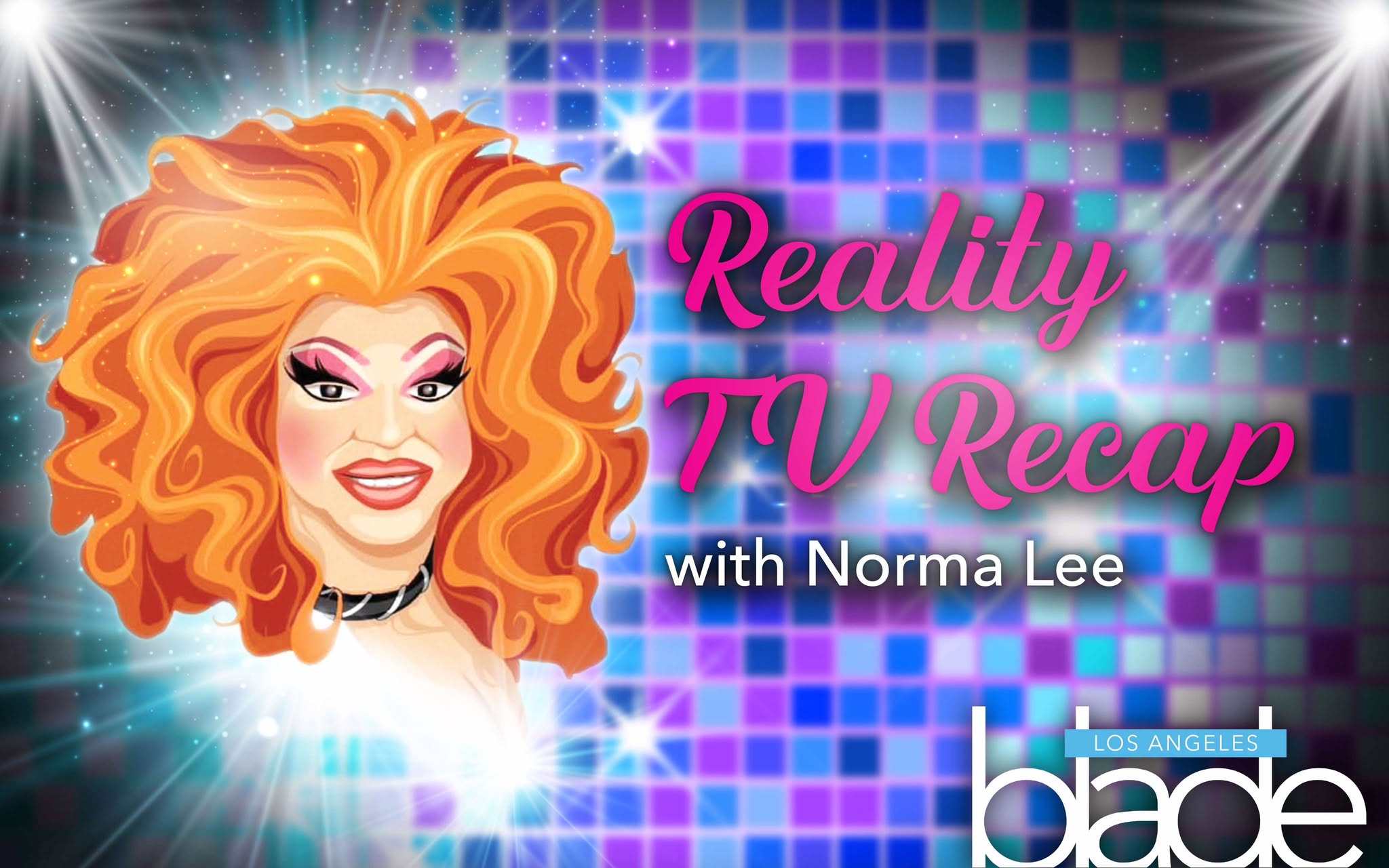
‘And still, I rise.’ If you’ve been using this quote nonstop this week, you have also been obsessed with the instantly iconic third and final part of The Real Housewives of Potomac reunion. The final chapter in season 9 of RHOP really had it all.
No joke, I’ve watched it three times this week. In case you missed it, QVC queen Stacey Rusch got dragged by the women, the production and the man she allegedly paid to play her boyfriend on TV. This man not only said Rusch hired him to be her boyfriend on TV, but she also still owes him money for it. Rusch did not believe it until production brought out the raw footage and even then she kept it calm, cool and collected. Either way, she earned her spot in a second season. Meanwhile, between that bombshell and the ‘oh-so-staged’ Karen Huger video, the other ladies were reading and roasting the house down. Then they went in on Huger and everyone spilled the tea about her day drinking around the D.C area.
What a great finale! Also, Mia wasn’t there because she left in a huff last episode, which leads to the question: do we still need Mia Thornton for season 10?
Talk about a show to put you to sleep. Let’s jump over to our home franchise of Real Housewives of Beverly Hills. Why am I so bored this season? Even this lively episode of Sutton’s fashion show gave meh the whole time. The only thing worth mentioning from an hour-long episode is that Kyle Richards was hurt after photos surfaced of her estranged – and hot – hubby Mauricio Umansky, kissing another woman at the airport.
She had a whole meltdown about it as if she hasn’t been flaunting her late-in-life lesbian relationship all over TV, social media and the paparazzi. Richards, give it a rest and come out. Do your part to make this boring show somehow interesting. I do love that Garcelle Beauvais is determined to out her on TV, which seems fair after Richard’s involvement in the whole Denise-Brandi drama a few years back.
Speaking of Denise Richards, I gave her new spin-off Denise Richards & Her Wild Things a shot. It’s random and not really worth watching. Almost all the Housewives of Beverly Hills past and present make cameos throughout the season, which feels a tad desperate. She did somehow manage to bring up again how hung her hot husband is in the first episode, but is that enough to keep the gay audience? Doubtful.
Now a reality show that totally delivered this week was the finale of The Traitors on Peacock.
Spoilers ahead!
In the final episode of the Emmy-winning competition, we saw traitor Danielle finally go home, sent packing by her Big Brother fr-enemy Britney. Now Britney is the only traitor left in the finale and the faithful must either banish her before it’s too late or lose all the prize money. Luckily, cutie Dylan Efron puts the pieces together and sways the rest of the castle to vote out Britney. Then the four remaining players decide to split the winning and the game is ended. The best gamers in the world competed and yet, Traitors was won by a royal, a bachelorette, a real housewife, and a nepo celeb. That’s TV gold, folks.
Arts & Entertainment
‘Drag House Rules’ premieres on OUTtv. Here’s the tea!
Parody meets drag in this playful takedown of the drag competition world
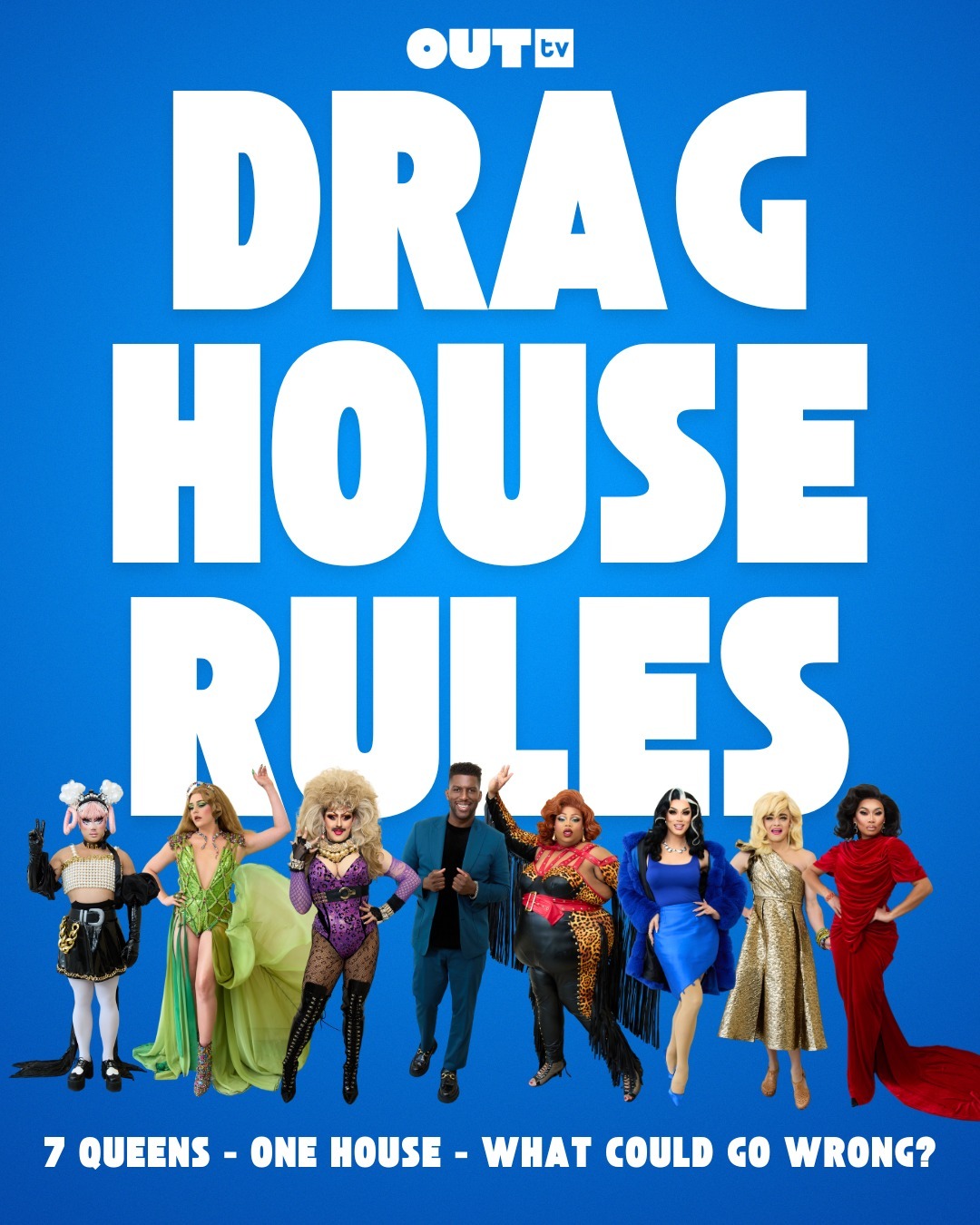
OUTtv’s latest content for the queer community Drag House Rules, hit the screen on Friday. Truth be told, we got a sneak peek but had to keep our lips sealed until its release. For those who think the Drag Race franchise has gotten a bit full of itself and the fandom a bit too serious, you will love this take on the drag competition world.
Drop Dead Gorgeous meets Drag Race’s Untucked as seven drag queens live under one roof to compete in a series of challenges to see who will win a cash prize of $100K. Scratch that, a prize VALUED at $100K. As one queen puts it, it could be $100K worth of paperclips for all they know. Where most competition shows place their competitors in expanse mansions. These queens have to live in a less-than-functional reality TV house with random smells, roaming crew members and handymen clunking around getting in the way of filming. This fun trope excuses the actual budgetary restraints for the show, while using it as fodder.
What can we say about the cast? It is a colorful and motley crew that employs Drag Race queens Jujubee, Manila Luzon, Silky Nutmeg Ganache, Laganja Estranja, Rock M. Sakura, Tammie Brown and Dragula’s Biqtch Puddin’, as the show’s contestants. And SoCal personality, Tony Moore as child-actor-turned-host.
These cast members couldn’t be more random and somehow it all works.
The differences in personalities, looks, sense of humor, and fandom clash in a delicious way. It is like someone shook a box full of Housewives and came up with a new cast.
What’s fun about the style of the show is that we get to see these queens stretch their acting chops and remind us why they are fan favorites. Most of these one-liners work and the clash of personalities makes for fun situations. Some of the humor is expected and a little low-reaching, but this fun take makes us want to see who wins while we really want to see who’s gossiping about who.
Tammie Brown, known for her eccentricity, practically walks away with the first episode with her random observations and outbursts that just seem home here. Her addition to the show adds a bit of Christopher Guest-style characterization that bolsters the show. As the show’s only non-Drag Race personality, Biqtch Puddin’ is a welcome foil who does not subscribe to the ego or pageantry often associated with the franchise.
Biqtch is that rebel cousin we see at family Thanksgiving who we want to appear cool in front of and who we want to sneak off with and get lit.
The show is written and directed by John Mark Hostetler who knows what the audience wants to see but also lets the actors explore the material and expects these queens to bring it. For the most part, they do. The show does a good job of making a small budget work, and the intros and edits look sleek and add some class to the show. The show is six episodes long and, according to the trailer, has some surprises and more appearances in store.
Los Angeles Blade was there for the release party last week held at WeHo’s Beaches Tropicana, where cast members and fans mingled for a first viewing. The audience cheered and was entertained by the whole affair. Hopefully, the series will be a hit and spawn more seasons where more queens can play freely.
Drag House Rules is now streaming on OUTtv.
Arts & Entertainment
Uncovering the remarkable trans representation in Netflix’s ‘The Secret of the River’
Trinidad González stars as a transgender model, alongside La Bruja De Texcoco, a muxe elder

“El Secreto Del Río,” or “The Secret of the River,” has made history as Trinidad González became the first transgender actress to star in a series by Netflix.
The eight-episode series handles trans and gender nonconforming representation in the most beautiful and impactful way I’ve seen to date on any show or film–especially in a Spanish series, considering the gender identity and sexuality taboos that exist in Mexican culture.
In a time in history where trans, gender nonconforming and intersex people are under attack and continue to face oppression when they demand basic human rights, this show beautifully and tactfully represents the true trials and tribulations that trans and gender nonconforming people experience throughout their lives–especially as children.
Throughout the first four episodes, we get to know Manuel (Frida Sofía Cruz) and Erik (Mauro Guzmán). The two children–whose ages are not disclosed in the series–become friends, and after they experience a traumatic event that shifts their lives forever, they become even closer.
The person who is involved in the traumatic event, is a cisgender, straight, man who proves to be the real villain of the show. He’s not only proudly an alcoholic, but he also tries to take advantage of one of the children. The way this unfolds, shows a side of Latin American culture that is hardly talked about. Many young children experience sexual assault at the hands of family members and close relatives and this issue is especially prevalent in Latin American and the Caribbean. According to a report by the National Library of Medicine, ‘… an estimated 58 percent of children 0 – 17 years of age in Latin America and the Caribbean (more than 99 million) experience physical, sexual, or emotional abuse each year.’
When the series begins, Manuel, or Young Sicarú, is new to town and immediately faces rejection because of how feminine he presents. Seeing his femininity, his grandma encourages Manuel to learn about the muxes (pronounced MOO-shay‘s), who are feminine people that exist outside of the male or female gender binary in Zapotec culture and who are deeply respected by many–but not all.
They are often the subject of scrutiny as a third gender, and this series clearly shows that the misogyny that exists in this culture is deeply embedded in the Western European concepts of gender binary and gender roles that are upheld at all costs even in Mexico. This involves a deeper discussion of colonization and imperialism that has forced these systems and ideologies on the indigenous communities that, prior to colonization, accepted third and even fourth genders.
Within a Christian and Western ideological framework, muxe’s are part of the LGBTQ+ community, which is actually quite inaccurate because that gender classification is not based on sexuality. According to an article on the subject, ‘individuals who identify with a cultural third gender are, in fact, acting within their gender or sex norm.’
This topic is explored in the episode where decades later, Gonzalez’s character returns to her hometown as Sicarú, the transfeminine model who returns not only to mourn the death of a close friend, but also to tie up the loose ends of her late grandmother’s abandoned property where another subplot unfolds.
Going back to the first 4 episodes of the series, where Manuel and Erik are still children, we see the development of fear that unfolds for the two, as they attempt to navigate life after the traumatic experience they shared.
Because of the nature of the events that unfolded, we learn why the 2 children feel as though they cannot trust an adult and be honest about what they witnessed. The children fear the justice system working against them, criminalizing them, rather than seeing them as the victims of the traumatic event. This intense fear is very real for Erik and it causes him to become withdrawn and somewhat depressed. This is a good learning point for parents and any adult in the lives of young children. Adults need to be a safe space for children, because if not, children are left alone to deal with the consequences and repercussions of situations that were most likely out of their control. They need to confide in adults and trust that we will keep them safe at all costs.
The adult in Young Sicarú’s life who becomes this sort of fairy godparent, is Solange (La Bruja De Texcoco). She is a muxe elder and well-respected member in the Zapotec community. Outside of the series, she is also a musician and an activist for human rights. Young Sicarú takes guidance from Solange and the other muxe’s, who keep Young Sicarú safe from the people in town who cannot come to terms with the femininity that she later embraces.
Jacinto (Jorge A. Jimenez), Erik’s father becomes the one of the series’ villains as he punishes his son for being friends with Young Sicarú, who the town perceives as a muxe, even before she is able to accept that identity. This show does a spectacular job at showing the various faces of machismo that is deeply embedded in Mexican culture and also the difference between muxe’s and transgender people.
In the following 4 episodes of the series, decades pass and as mentioned before, Sicarú returns to the small town as a transfeminine woman who makes it clear to her muxe community that she does not identify as muxe. She identifies as a trans woman and has a conversation with her muxe community about the distinction between the two identities.
She comes in hot. Both in looks and in character. Her character development is incredibly thought-out as we see her go from being a shy, scared child–to a confident woman who is so free in her identity, that she decides to use her freedom to help free others.
This is important to see unfold on-screen because this type of representation is hardly ever seen, much less on the level of discussion that actually has substance and depth.
Trans people are hardly ever portrayed in a positive way that shows how they develop strength and courage as a survival mechanism and use that to enact positive change or leave behind a legacy of progress.
Meanwhile, the case that had been closed for decades regarding the traumatic event that unfolded for Young Sicarú and Erik, is reopened by their childhood bully–who unironically becomes a crooked police officer as an adult.
He reopens the case and comes to find out that Sicarú and Erik were involved in the death, making it his mission to harass Sicarú.
Another villain. Another cisgender, straight, man with anger issues and deeply rooted misogyny.
The fourth and final villain of the series, is the cisgender, straight, man who is keeping a young boy captive in the abandoned home of Sicarú’s late grandmother. It turns out that he is involved in a sinister business with the town’s police force.
Here, we see the very intentional representation of what real groomers look like and they’re not trans.
Sicarú sees herself in the young child and feels as though it is her sacred duty to save him from the abusive and neglectful situation he is in.
Another aspect of the series that was deeply moving and impactful, was the way that muxe’s deaths are handled in Zapotec culture. Because of Western European religious frameworks enforced on the indigenous communities, they believe that Muxe’s must go into the afterlife as either male or female and not a third gender.
This brings up a very deep theme of afterlife and spirituality in relation to gender identity. This is a struggle for trans, gender nonconforming and intersex people as they exist in an identity their friends, family, society, culture or religion might not understand or accept.
Finally, the more-than-platonic relationship that develops between Sicarú and Erik when they are older, is a great conversation point that was also handled with care.
Erik is genuinely confused about his feelings toward Sicarú and the years of misogyny that were forced on him as he grew up, continue to shape his view of gender identity. In some scenes, we see Erik reflecting on what his father would tell him as a child. Alberto Barrera, creator of the series, gives us a unique perspective into Erik’s internal battle by interchanging young Erik and adult Erik in the scenes to help visualize his internal battle. In this scene, we hear Jacinto reinforcing his machismo in the form of homophobia and transphobia toward young Erik.
When they were both younger, they had a third friend in their friend group, Paulina (Yoshira Escarrega), who later becomes Erik’s fiance. She welcomes Sicarú back to town with open arms, only to feel betrayed by her when she finds her and Erik sharing a somewhat intimate moment.
In that moment, Erik confesses his confusion toward accepting Sicarú’s transition and she doesn’t know what to do to make him understand that she is still the friend he’s always cared for. The two navigate a difficult situation in a way that provides the audience with a realistic view of the journey toward acceptance.
There won’t be any spoilers here, but the ending suggests that there is more to come from this series, as a major problem comes to light that brings turmoil to the entire town.
Overall, this series touches on very serious subjects in a way that can begin to build bridges in the discussions about transfemicide, human rights, misogyny, violence toward children and what the journey toward healing our inner child looks like.
Television
Putting off watching ‘Monsters?’ You’re missing out
Netflix hit about Menendez killings is awards-worthy TV

You know it’s there. It’s been lurking in your Netflix queue for weeks now, taunting you, beckoning you with its sure promise of sexy, lurid thrills, but you’ve been holding back – and we can’t say we blame you. After all, that “Dahmer” show was pretty hard to watch.
For many Netflix viewers, there have been no such qualms; though Ryan Murphy’s “Monsters: The Lyle and Erik Menendez Story” debuted nearly a month ago, it’s currently the platform’s #3 most-watched series in the U.S., despite mixed reviews from critics and controversy over the way the show’s narrative depicts the facts of the notorious 1989 murder that put the two brothers in the national spotlight through two highly publicized trials. Even if killing their wealthy parents put the Menandez brothers into prison for life, it also put them into the upper echelon of “True Crime” superstars, and that makes anything dealing with their story “must-see TV” for a lot of people.
If you’re one of those who have resisted it so far, it’s likely your reasons have something to do with the very things that make it so irresistible to so many others. It’s hard to imagine a more sensational (or more gruesome) crime story than the tale of Lyle and Erik (Nicholas Alexander Chavez and Cooper Koch), who killed their wealthy parents with multiple shotgun blasts in their Beverly Hills mansion, claimed the deaths were the result of an organized crime “hit,” and then went on an extravagant spending spree with their multi-million-dollar inheritance. Even knowing just the surface details, it’s brimming with circumstances that conjure deep and troubling questions, not least about how two abundantly fortunate young men – Lyle was 21 at the time of the killing, Erik only 18 – could possibly have become capable of such a horrific act; their claim they acted in fear, after years of sexual and psychological abuse from their parents, offers answers that only leads to more questions. It’s easy to see how a morbid fascination could develop around the case (and the perpetrators, who at the time were each charismatic, handsome, and somehow boyishly adorable in spite of the silver-spoon detachment they seemed to exude) in a society endlessly fascinated by the dirty secrets and bad behavior of rich, beautiful people.
That, of course, makes the Menendez saga a natural fit with Ryan Murphy’s brand of television, which embraces the sensationalism of whatever subject it tackles – as we’ve seen from the transgressively macabre twists of “American Horror Story” to the scandal-icious celebrity backbiting of “Feud” to the campy noir-flavored psychopathy of “Ratched.” His “American Crime Story” anthology has delivered its true-life dramas with an equal eye toward creating those “WTF?” moments that inevitably have social media buzzing with both glee and outrage the morning after they drop. The “Monster” franchise is a natural progression, using Murphy’s shrewd knack for cultural provocation to unearth the underlying social dysfunctions that help create an environment in which such killers can be created.
With the inaugural installment, “Monster: The Jeffrey Dahmer Story,” it can be argued that he crafted a chilling masterpiece of binge-able long-form storytelling that not only took viewers into the unspeakable horrors that took place in the killer’s apartment, but into the mind of the man who committed them. Yet while the show proved successful, earning an impressive tally of critical accolades, it was met with a harsher tone – much of it from families of Dahmer’s real-life victims – for capitalizing on his crimes.
For “Menendez,” the reception has been predictably similar, though its critical reception has not been quite as warm, with many reviewers taking issue with Murphy’s signature slicked-up style and the show’s overt homoeroticism. Controversies, however, have come along as expected; objections over the extremely unflattering portrayal of José and Kitty Mendez (the ill-fated parents, played here with star-power intensity by Javier Bardem and Chloë Sevigny), and of the incestuous bond alleged between the title characters themselves, have arisen alongside complaints about the distortion of facts to support a narrative favoring the boys’ version of events that Murphy – who co-wrote the series as well as produced it – wants to advance.
It’s certainly fair to claim that Murphy plays fast and loose with facts; his purpose here is not to transcribe events, like a docuseries, but to interpret them. He and his fellow writers craft “Monsters” theatrically, with bold strokes and operatic moments; they mine it for black humor and milk it for emotional intensity; the series plays up the brothers’ pretty-boy charms, caressing their sculpted bodies with the camera and frequently showing them in various states of near or total nudity; it seems to fixate on the messy, petty, and ignoble traits of its characters, and illuminate the messy personal motives driving their public agendas; it even employs a “Rashomon”-esque approach in which it variously portrays different versions of the same events depending on the character describing them. In short, it’s not a show that is looking for factual truth; it’s searching for a more complex truth behind the facts.
That truth, perhaps, has a lot to do with the shame, stigma, and silence around abuse; the tendency to disbelieve the victims (especially when they are male – a prosecutor during the trials famously argued that a male “couldn’t be raped”); the cultural homophobia that further complicates the dynamic when the abuse comes from someone of the same sex. Does such abuse warrant absolution for murder, especially when the murder is as excessively brutal as the killing of José and Kitty Menendez? That’s a question Murphy and crew leave up to the viewers.
Such moral ambiguity is surely part of the reason that shows like “Monsters” and its predecessor are met with such hostility from some viewers; they offer no easy comfort, no straightforward moral order to reassure us that our perceptions of good and evil are just or fair or even correct – and if you’re looking for a hero to step forward and make sense of it all for us, you’re not going to find one.
If that’s too bleak a prospect for you, or if the notion of criminals as celebrities is something you’re just not comfortable with enough to make allowances for artistic intention, then “Monsters” may not be for you.
For anyone else who has hesitated to watch, however, it’s a show worthy of your time. Though it might seem uneven, even disjointed at times, it paints an overall picture of the Menendez case that is about something much more than the murders – or the murderers – themselves. The performances are all accomplished, well-tuned together to a sort of elevated authenticity, with special note to a jaw-dropping star turn by Koch monologuing his way through a one-shot full-length episode filmed in a single take.
The latter alone is enough to make “Monsters” an awards-worthy piece of television. While it may not be the right show for every taste, it’s not “trash TV” either. It’s a bold and challenging work from one of our most prolific and dedicated queer showmen, and if it leaves you feeling sorry for monsters, is that really such a bad thing?
Television
PBS ‘Disco’ is a Pride party you don’t want to miss
Rich collection of footage highlighting the music and fashion of the time
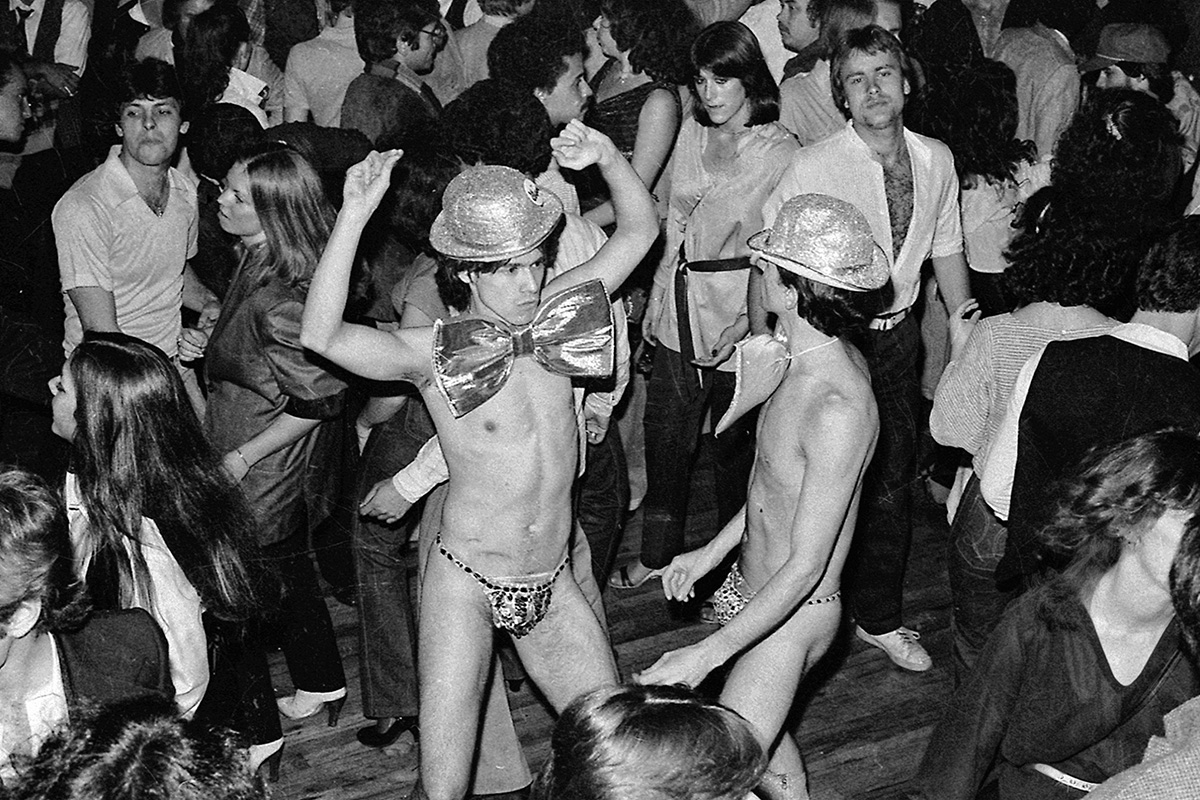
Anyone who was alive and old enough to listen to the radio in the 1970s knows that disco wasn’t just a genre of music. It was an entire lifestyle, centered around dancing in nightclubs to music that meshed R&B with new electronic sounds and an infectiously up-tempo beat – and at the height of its popularity, it had bled into the entire American culture. Every TV theme or movie soundtrack was flavored with a disco vibe, every musician seeking a comeback recorded a disco record, and every would-be dance dandy dreamed of sporting a pair of “angel flight” slacks to the disco every Saturday night.
If you didn’t live through it yourself, most of what you might know about this era is likely gleaned from its popular culture – the hot radio singles, the popular movies like “Saturday Night Fever,” the kitschy crossovers like “Hooked On Classics” and parodies like “Disco Duck” – after the skyrocketing popularity of the phenomenon had made it a golden ticket for anyone who wanted to capitalize on it. They were crossovers into the homogenizing mainstream, intended to commercialize the disco frenzy for consumers beyond the record stores and nightclubs, which became cultural touchstones, for better or for worse; but because their campy shadows still loom so large, anyone whose understanding of the “disco craze” has been gleaned only from TV or the movies is likely to remember it as a little more than a fun-but-silly footnote in late 20th-century American history.
Fortunately, PBS and BBC Studios have unveiled a new docuseries that sets the record straight – or perhaps we should say it “queers” the record, because it offers a detailed and savvy chronicle that illuminates the ties that bind the story of disco inextricably with an essential chapter of modern queer history, revealing its link to the liberation movement that blossomed in the ‘70s and continues to weave its thread through American society today.
Produced and directed by Louise Lockwood and Shianne Brown, “Disco: Soundtrack of a Revolution” – which broadcast its first episode on June 18, and is available for streaming in its entirety for subscribers via the PBS website – charts disco’s origins, success, and demise across a trio of episodes for a comprehensive look at the whirlwind of forces that surrounded and catapulted it into American consciousness. It explores the phenomenon as a vibrant and thrillingly inclusive cultural wave that originated within a blended underground of marginalized communities in New York City, at private loft parties and underground dance clubs, and grew until it had saturated the world. It highlights the sense of empowerment, made tangible in the opportunity and elevation it offered to artists who were queer, female or people of color, and yet it still welcomed anybody who wanted to join the dance with open arms. It was a chance to celebrate, to feel good and have fun after an intense period of social strife in America, which meant it went hand-in-hand with the sexual liberation that was also exploding across society. Most importantly of all, perhaps, it came with a laid-back vibe that gave you permission to let loose in ways that would have shocked your parents; in retrospect, it’s hard to imagine how anybody could resist.
Yet of course, there were people who did; and when the juggernaut that was disco inevitably began to lose steam as a result of its ubiquity and the perceived decadence of its hedonistic lifestyle, it was their voices that emerged to tell us all that “Disco Sucks” – a catch phrase that is perhaps almost as much a cultural touchstone as some of the genre’s biggest hit records.
That’s the broad overview that most people who remember the disco era already know, but “Soundtrack of a Revolution” gets much more granular than that. Much of the enlightening detail is provided, as one might expect, through a rich collection of contemporary footage highlighting the sights and sounds – the people, the parties, the music, the clubs, the fashion – of the time. Counterpoint to that material, however, comes through modern day interviews with key figures who were present for it all, whose memories help connect the dots between the evolution of disco and the societal environment in which it took place.
Of course, most audiences who are drawn to a documentary about disco will likely be coming – at least partly – for the music, and fortunately, this one gives us plenty of that, too. Better still, it gives us deep dives into some of the most iconic tracks of the seventies, not just spotlighting the artists who recorded them, but the DJs and tastemakers whose ideas and innovations built the very sound that fueled it all. Some of these pioneers may be gone, but they are represented via archival footage, and many who are still among us offer up their insider perspectives through candid filmed interviews that are woven throughout the series. There’s a first-person reliability that comes from allowing these participants in the history to tell their own part of it for themselves, and it gives the series an atmosphere of authenticity – not to mention an influx of free-wheeling, colorful personality – that can’t be achieved through the observations and analysis of expert “talking head” commentators.
It’s these voices that also help to impress upon us the feeling of freedom and acceptance that developed in those early disco clubs, where people from minority cultures could come together and feel safe as they danced to music that came from others like them, and the frustration of watching as it was co-opted by a (mostly white and heterosexual) mainstream and watered down into a pale mockery of itself – something that “killed” disco long before hate-fueled backlash from a racist, misogynistic, homophobic culminated in the infamous anti-disco rally at Chicago’s Comiskey Park, as documented in the series’ final episode.
Yet although it stops short of blaming homophobia and bigotry for the genre’s collapse, “Soundtrack of a Revolution” leaves no doubt of its influence over the environment that surrounded it, nor of the impact of the subsequent AIDS crisis on stopping the advance of queer liberation that was at the heart of the disco movement in its tracks – and in an election year that might make the difference between preserving or dismantling the ideal of Equality in America, the story of disco’s audacious rise and ignoble fall feels like a particularly apt warning message from the past.
Even so, one of the many gifts of the series is that it reveals a continuing creative lineage that, far from being cut off with the “death” of disco, has gone on to evolve and expand into new genres of dance and musical expression. Disco, it seems, never really died; it just went back into the underground where it was born and continued to develop, reinventing itself to meet the taste and match the needs of new generations along the way.
We could all take a lesson from that.
Television
‘Interview with the Vampire’ returns in triumph
Long-awaited season 2 continues to get story exactly right

When AMC debuted its long-awaited series adaptation of “Interview With the Vampire” – Anne Rice’s seminal proto-postmodern horror novel that set the stage and paved the way for a decades-long literary franchise that has kept millions of readers, queer and straight alike, passionately engaged since first reading its thinly veiled allegorical document of life as a being with heightened awareness on the edge of human existence – in 2022, we were among the first to sing its praises as a triumph of narrative storytelling,
We were not the last. The series, created by Rolin Jones in collaboration with Christopher Rice – the original author’s son and a successful horror novelist in his own right – and the late Anne Rice herself, was one of its season’s best-reviewed shows, earning particular praise for its writing, in which the queer “subtext” of Rice’s original works was given the kind of unequivocal full weight denied to it in the Brad Pitt/Tom Cruise-starring Neil Jordan-helmed film adaptation from 1994.
Though purist fans of the original boom series took occasional umbrage to some of the show’s leaps – changing the historical period of the story to illuminate themes of racism and deepen its resonance for those living as “others” on the fringe of society, and making the book’s protagonist, Louis Pointe du Lac (Jacob Anderson), a closeted Black Creole man in early 20th-century New Orleans – the series won most of its naysayers over by its season finale. It delivered a deliciously subversive, unapologetically queer interpretation that remained true to Rice’s original gothic re-imaginings while expanding the scope to encompass social and cultural factors that have become central to the moral and ideological conflicts that plague us in the first quarter of the 21st century.
To put it bluntly, the show’s willingness to embrace the story’s countercultural queer eroticism and place its transgressively amoral “moral compass” front and center was more than enough to smooth over any nitpicking over faithfulness to narrative detail or tone that might otherwise have kept Rice’s legion of acolytes from signing on to the new-and-contemporized vision of the book that Rollins built as the foundation for his daunting project.
Now, after a buzz-tempering delay borne of last year’s actor’s strike, the series has returned for its second season. And we’re happy to assure you that its feet hit the ground running, keeping up both passion and narrative momentum to pick up the story with electrifying energy after leaving off (at the end of season one) with the shocking murder and seeming elimination of Lestat (Sam Reid), the exquisitely amoral “rock star” vampire who served as both protector and lover of Louis, and the departure of the latter and his perpetually juvenile “daughter,” Claudia (Bailey Bass) on s quest to find others like themselves.
Fans of the book might, in fact, find new reasons to take exception to the show’s adaptation, which, as in season one, makes significant departures from the original narrative. After moving the story’s setting forward by roughly half a century, Louis and Claudia’s secretive sojourn now takes place in the traumatized landscape of post-WWII Europe, and spins a scenario in which the two ex-pat vampires, navigating their way through the perils of Soviet-occupied Central Europe after the fall of the Nazi regime, spend time in a refugee shelter while investigating rumors of old-world vampires who might provide a link to their “family history.”
When we rejoin this pair of relative fledgling vampires, their undead existence is a far cry from the decadent elegance they enjoyed in the New Orleans setting of season one. Enduring a near-feral existence as they make their way through a war-ravaged landscape, they find no shortage of prey in the aftermath of the Third Reich, but the “creature comforts” of their former “afterlives” are now only a memory. Louis is devoted, as always, to Claudia (now portrayed by Delainey Hayles, presumably due to scheduling conflicts for original actor Bass, who is set to reprise her role from “Avatar: The Way of Water” in the next installment of filmmaker James Cameron’s high-dollar sci-fi franchise), but remains haunted by his vampire maker and former lover Lestat, whose undead corpse remains buried on another continent but whose charismatic presence manifests itself in his private moments, nonetheless. In the first episode, the pair have used their supernatural wiles to journey into the “old country” long associated with their kind, tracking human tales of monstrous terrors in the night in hope of connecting with more of their kind. Louis, as always, struggles with his compassion for the mortal beings around him, while the more savage Claudia simply sees them as prey, and holds little hope of finding other vampires, if they even exist. For her part, Claudia has forgiven – but not forgotten – his refusal to ensure Lestat’s demise by burning his body, and is now solely focused on finding others like her.
Of course, the adventures of these two undead companions are only half the equation in “Interview With the Vampire.” The past is, as always, merely a flashback, as Louis relates the story of his afterlife experiences to mortal journalist Daniel Molloy (Eric Bogosian). In the present, the skeptical Molloy casts doubt on the truth of his memories, forcing the vampire to re-examine them as he goes. Perhaps more interestingly, in the long game of a series which, if it comes to full fruition, will eventually encompass the entire Rice vampire saga, these contemporary scenes give us a look at the relationship between Louis and Armand (Assad Zaman), revealed in the season one finale to be not a mere servant in Louis’ household but a centuries-old fellow vampire who is now Louis’ lover and companion.
Fans of the books, of course, know that Armand plays a significant role in the story of the past, too, and while we won’t spoil anything, we can say that history begins to unspool as season two progresses – but that’s getting ahead of ourselves. For now, what we can say is that season two’s first episode, while it may veer away from the familiarity of Rice’s original tale in service of reimagining it for 21st-century audiences, continues the first season’s dedication to breathing thrilling new life into this now-iconic, deeply queer saga; superb performances all around, an elegantly cinematic presentation and literate writing, and a lush musical score by Daniel Hart all combine to sweep us quickly and irresistibly into the story, making us not just fall in love with these vampires, but want to be one of them.
That, of course, is the gloriously sexy and subversive point of Rice’s “Vampire Chronicles,” and this long-awaited series continues to get it exactly right.
Television
Watch ‘Feud,’ if you like glam and wit doused with betrayal and regret
New series focuses on Truman Capote and NYC socialites
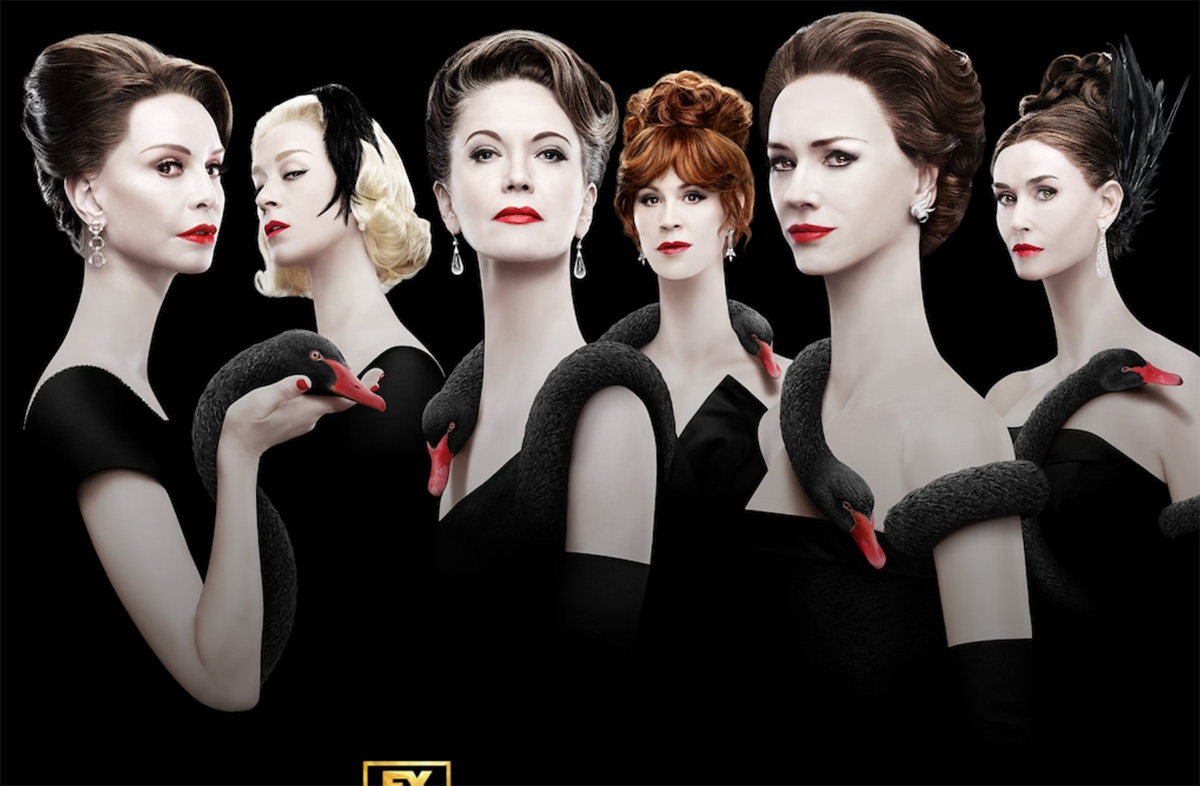
Nothing is more of a pick-me-up in the doldrums of winter than a fabulously acted, incredibly stylish feud. Complete with Champagne flutes and a splendiferous mid-century ball at New York City’s Plaza Hotel. Especially, when it’s part of the ouevre of queer TV producer and creator Ryan Murphy, whose beloved shows include “American Horror Story,” “Glee” and the anthology series “Feud.”
Season 2 of Feud, “Feud: Capote vs. The Swans,” which premiered on Jan. 31, will air weekly on FX through March 13. Episodes stream the next day on Hulu.
“Feud’s” powerhouse cast, which delivers stellar performances, includes: Tom Hollander as Truman Capote along with Naomi Watts, Diane Lane, Chloe Sevigny and Calista Flockhart as Capote’s swans.
Demi Moore plays Ann Woodward, a socialite who Capote falsely said intended to murder her husband. Molly Ringwald portrays Joanne Carson who befriended Capote when nearly no one would take him in. The role of CBS chairman Bill Paley fits the late Treat Williams like a glove.
Hollander makes Capote seem like a brilliant, flawed, cruel, sometimes kind, human being, rather than a “fairy” caricature.
Jessica Lang does a star turn as the ghost of Capote’s mother. Gus Van Sant directs most of the episodes of “Feud.”
“Feud” is based on Laurence Leamer’s book “Capote’s Women.” Playwright and screenwriter Jon Robin Baitz adapted Leamer’s book into the miniseries “Feud.”
“Feud” is the story of how acclaimed queer author Capote, after becoming their best friend betrayed his “swans.”
“The swans,” were the rich, beautiful, New York society women who confided their secrets (from their insecurities about their looks to their husbands’ infidelities) to Capote.
These “swans,” who took Capote into their inner circle, were: Babe Paley (wife of CBS chairman Bill Paley), Lee Radziwill (Jackie Kennedy’s sister), socialite Slim Keith (ex-wife of Howard Hawks and Leland Hayward) and socialite C.Z. Guest.
“You can’t blame a writer for what the characters say,” Capote, once said.
His swans didn’t agree with Capote’s dictum.
Capote’s betrayal of the swans occurred in 1975. That year, “Esquire” published “La Cote Basque, 1965,” a chapter from Capote’s much anticipated novel “Answered Prayers.”
(Capote never completed the novel. An unfinished version was published after his death.)
The “Esquire” story, set in the restaurant where Capote often lunched with his “swans,” hurt and infuriated “the ladies who lunched.” The details revealed in the “Esquire” story were so personal and thinly veiled that the “swans” felt readers would easily identify them.
“Feud” depicts the bonds of friendship that frequently exist between hetero women and queer men. Capote gave his “swans” the love and attention their spouses failed to provide. Babe Paley called Capote her “second husband.”
For Capote, an outsider because he was gay, “the swans” provided acceptance, association with high society (which he both loved and despised) and material for his writing.
Capote became estranged from the “swans” right after the “Esquire” story was published.
“Feud” goes back and forth in time. At first, this is a bit disconcerting. But, soon, it keeps things moving, and provides fascinating glimpses into Capote and the “swans.”
Bill and Babe Paley think Capote is the “other Truman” (Harry Truman) when they meet him in the 1950s.
In the 1970s, after the “swans” have shunned him, Capote is a washed-up, alcoholic, drug-addicted has-been. (Capote died in 1984 at age 59 of liver disease.)
The third episode is the stand-out of “Feud.” In 1966, Capote was at the height of his power after “In Cold Blood, his “non-fiction” novel, had been published to much acclaim and commercial success. To celebrate, Capote threw a Black and White masquerade ball. The ball, to which Capote invited 540 guests, was the most famous party of the 20th century. Katherine Graham of The Washington Post was the guest of honor.
The episode is shot as a (fictional) documentary of the ball. Shot in black and white, it’s visually stunning. We see interviews with some of the “swans,” who are ticked off, but trying not to show it, because Capote had led them to believe they would be the guest of honor.
Watch “Feud,” if you like glam, hats, white gloves, cocktails and wit doused with betrayal and regret.
-

 Commentary4 days ago
Commentary4 days agoThe Supreme Court’s ‘Don’t Read Gay’ ruling
-
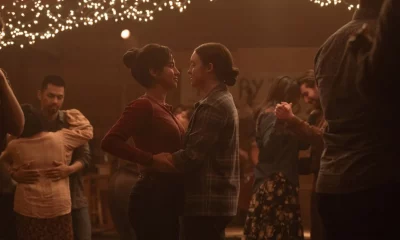
 Arts & Entertainment3 days ago
Arts & Entertainment3 days ago2025 Emmy nominations: ‘Hacks’ and ‘The Last of Us’ bring queer excellence to the table
-

 a&e features4 days ago
a&e features4 days agoThe art of controlled chaos: Patrick Bristow brings the Puppets to life
-
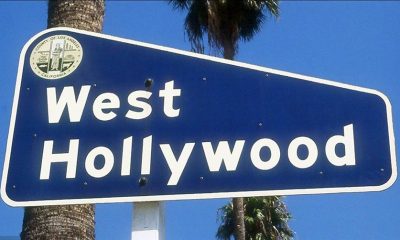
 News2 days ago
News2 days agoWest Hollywood to advance protections for diverse and non-nuclear families
-
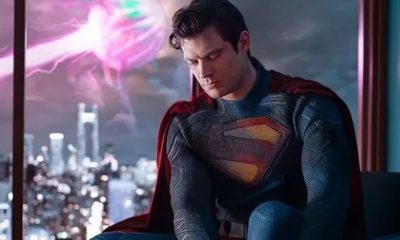
 Movies3 days ago
Movies3 days ago‘Superman’ is here to to save us, despite MAGA backlash
-

 Sports3 days ago
Sports3 days agoHololive and Dodgers create a home for queer fandom
-
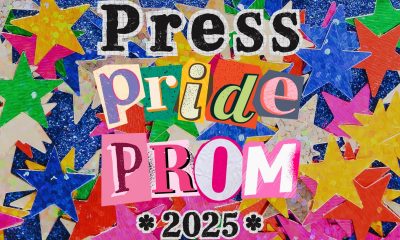
 Events2 days ago
Events2 days agoLos Angeles Blade to take special part in NLGJA Los Angeles inaugural journalism awards

